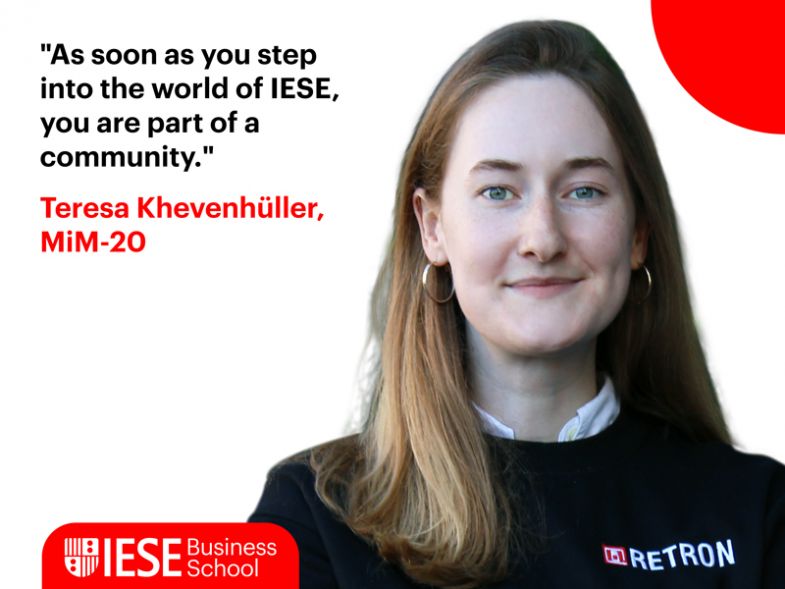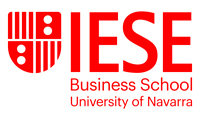
The welcoming and motivating environment at IESE Business School attracts dedicated learners who form strong alumni networks long after graduation
During her master’s in management at IESE Business School, Teresa Khevenhüller realised the importance of lifelong learning. “I used to think that you go to university, you move on to your job, and then you learn in your job,” she says. But in her courses at IESE, she met fellow students who had been working for 20 years. “Whatever the position you’re in or job you’re in, you always want to learn more and develop yourself further.”
IESE Business School, the graduate business school of the University of Navarra in Madrid, has campuses in several countries and more than 57,700 alumni spread all over the world.
Alumni played a vital role in helping Khevenhüller select IESE Business School for her postgraduate studies. “I initially liked the IESE programme because of its course structure,” she remembers, but discussions with former students crystallised her decision when they told her about the congenial environment, both during and after studies. “When you apply to a university, you look at the credentials, the rankings and course structure. But in the end, you want to know what the university experience will be like.”
The structure of IESE’s master’s in management was also a strong draw, she says. The master’s is predominantly case based, meaning it’s very practical. “When it was a financial or behavioural course, the learning was always immediately applied,” she says. “Whatever you learned, it was always from a human or problem perspective. I’ve been working for more than three years and it really gives you a good insight into what it will be like in the real world because they are all real-life cases.”

The IESE Business School actively fosters a community atmosphere, for current and former students. “As soon as you step into the world of IESE, you are part of that world continuously,” Khevenhüller says. The institution regularly holds seminars, talks and programmes, which are also open to alumni. “You really get encouraged to further your knowledge, and not just in the topic or field that you’re working in,” she says.
“Today, the world is so complex and there are big issues that can feel overwhelming. How do you map out a career path when you don’t know what the world will look like?” she asks. The business school regularly reaches out to students and alumni, offering talks to help them navigate their careers.
Alumni also foster supportive networks: “For example, if someone has a problem or says, ‘I’m interested in this industry’, someone will say, ‘But we have alumni who work in that industry’,” Khevenhüller says. “Everyone is always excited to speak to fellow alumni and to help.”
The institution recently introduced a dual master’s degree in management and business administration. Khevenhüller is excited at the prospect. “It’s something I’d like to do. It’s such a good opportunity because you can build one on top of the other and you don’t have to do them separately,” she says. “Before, I thought I would have to decide between one or the other. Now, I can do both.
Learn more about the master’s in management at IESE Business School.
Join the next IESE Business School master’s in management online business case masterclass.
Request more information about the master’s in management at IESE Business School.



